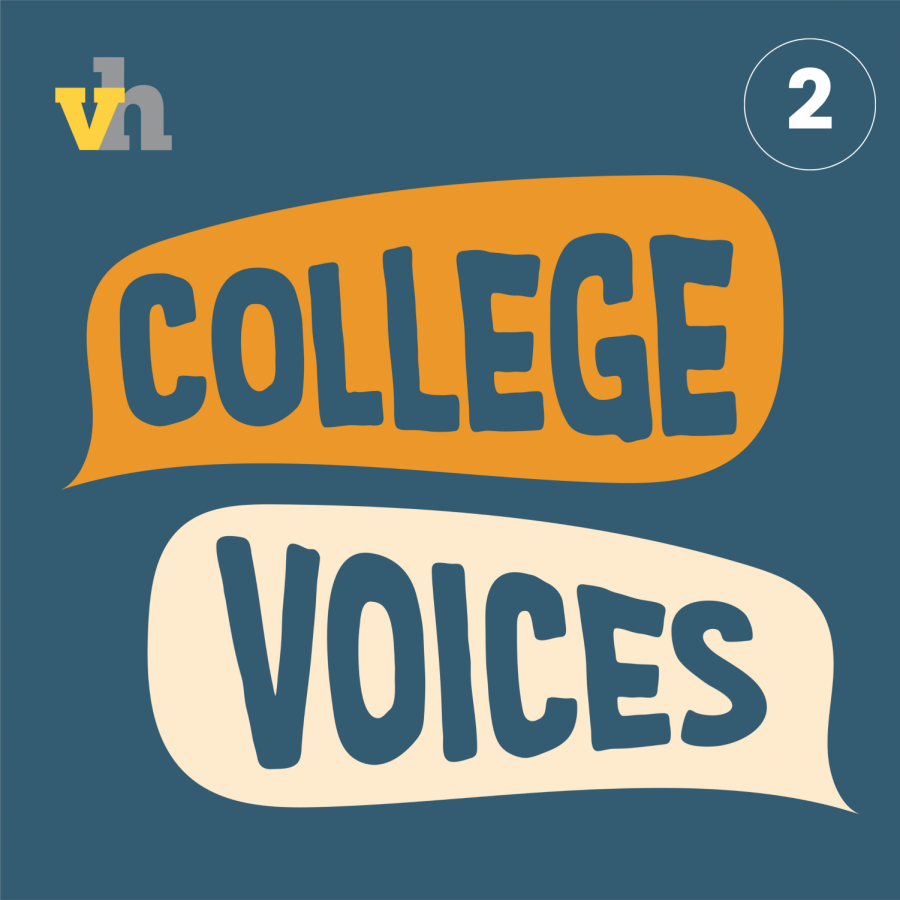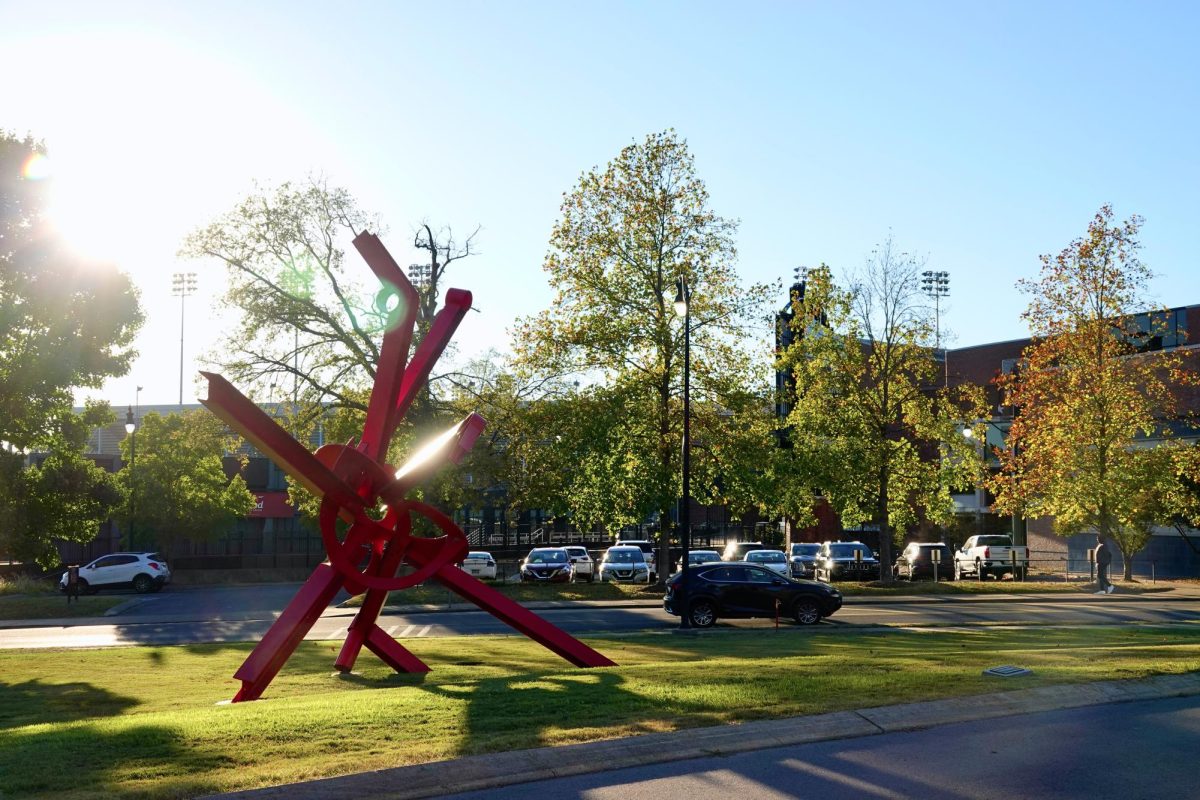The first time I encountered my advisor was in a large lecture hall with 100 other computer science students. I doubt he knew of my existence at all — and he certainly did not know how to guide me through the four years I have ahead of me.
That’s all the advising there was. A presentation with bare-bones information that was applicable to everyone. Second semester rolled around, and I found myself in the same lecture hall once again, listening to a similarly elementary presentation — but this time with the addition of waiting in a 30-minute line for a minute-long meeting with my advisor.
In the School of Engineering, each major has a group advising session with other students of their major and grade once a semester. For less common majors like electrical or chemical engineering, students may be fortunate enough to receive some more personalized advice, but, in my experience as a computer science major, I was just one student in a sea of others.
Of course, this dynamic is not the fault of the hardworking advisors who are trying their best; it is Vanderbilt’s fault. While my peers in the College of Arts and Science had Zoom calls with their CASPAR advisors to register for classes over the summer, first-year engineering students had to wait patiently until August for their major-specific advisors to be assigned — long after fall class registration. While registering for classes, I had no knowledge of which classes were the best for my goals and my situation, and my cart was filled with anything that seemed remotely beneficial to my uninformed eyes.
The only school-approved resource available for incoming first-years is an example schedule, which briefly mentions how many students may “require some guidance” in schedule selection. Before even setting foot on campus, first-year engineering students are completely left to fend for themselves. Typically, engineering students here essentially copy the example schedule, take a shot in the dark or ask other students for help.
Before I arrived on campus, I emailed the general engineering advisor who is responsible for advising all the incoming first-years prior to major-specific advisors being assigned.
“If I have AP credit and do not want to retake the class, what should I take instead?” I wrote to the general advisor as I panicked over course selection and how to plan for my future.
The reply I received? “Take another course.”
I quickly gave up looking for help from the general advisor, instead hoping that the one-hour Zoom session for engineering students would shed some light. Again, I was disappointed. During this mass webinar, the advisors simply covered the first-year example schedule available online and told us how to access YES. Ironically, information related to course selection was presented to students in an engineering advising meeting after school had already started, long after the information would have been useful.
The only support I received in planning the rest of my college career was “If it passes the what-if scenario, I will release the hold and you’ll be ready to go!” The “what-if scenario” is a feature on YES where you can build schedules and check if courses will meet graduation requirements. My advisor isn’t wrong; if I follow the plan I made in what-if, then I’ll graduate with a degree. However, I do not know if my plan is manageable, if it’s tailored to my future plans or if it is even a good plan at all.
Considering the circumstances, I feel that I fared considerably well fending for myself. However, I would have been much better off had I been able to discuss my future with an advisor. I managed to avoid some of the common pitfalls I saw other students fall into by asking for help from some kind upperclassman. Many engineering students end up retaking classes they do not need to, taking classes that are irrelevant to their interests or setting themselves up for future 18-credit-hour semesters by taking the wrong classes. Although everything turned out okay during my first semester, I still can’t shake the lingering feeling that I am still lost and unprepared.
Vanderbilt’s School of Engineering is clearly failing to guide engineering students. Our advisors cannot be blamed for their lack of responsiveness; they are Vanderbilt professors who already have responsibilities of their own, and having a thorough understanding of the various ins and outs of scheduling is not an easy task. Supporting hundreds of nervous first-years planning out the rest of their lives is a large ask for academics who are working on their own careers. Advisors who have time to meet with students and who can dedicate themselves to understanding the system would be much more beneficial for everyone involved than a professor who already has enough on their plate.
As I near the end of my first year, I am considering taking on another major or pursuing a 4+1 program, but I’m not sure where to start. At best, my decision-making is built on what feels right, and, at worst, I’m acting on a whim, though there isn’t much difference between the two. I can’t say that I’m inclined to email my advisor for help after not receiving replies, and the group meetings for computer science majors are not helpful for specific and personal questions.
One may argue that a student could discover all the information they need for a successful undergraduate program on their own, but unfortunately, with constantly changing policies and webpages, this information is often unavailable or outdated. Moreover, students shouldn’t be expected to do the job of an advisor. We pay a hefty price to gain access to Vanderbilt’s resources. Having knowledgeable advisors with enough free time to support students is necessary to help students access Vanderbilt’s resources and achieve their dreams without dealing with constant roadblocks, stress and doubt. Opportunities are limitless at Vanderbilt, but the resources to direct students to these opportunities are not.








Bo Carter • Mar 27, 2023 at 3:32 pm CDT
Here’s a thought: change your major to Classics (the department needs more bright student majors) and go to graduate school for your engineering degree. The old Classics major worked well for VU graduates such as Grantlland Rice, Dr. Jerry Muntz, Dr. Charles D. Hill, and Bo Carter.
Anonymous • Mar 20, 2023 at 12:46 pm CDT
Much of college is predicated on your position as an adult. You are the one who has to take the initiative. There are endless resources from which you can look for suggested courses to take, ranging from an entire catalog of historically and presently offered courses on YES to meeting with professors during office hours (or otherwise) who are more than happy to offer you guidance on classes they would recommend you take. Is the first-year engineering advisor program underfunded? Perhaps. Should you have emailed your advisor for an in-person follow up to discuss what classes to take? Probably. While there are certainly issues with first-year advising, no system is perfect, and whining about it certainly won’t solve the problems you perceive to be administrative failures; instead, take some initiative now that you’re in college and reach out. Stop by your professors’ offices and talk about what your interests are and what they would recommend you take, stop by an upperclassmen TAs office hours and ask about what classes they found most valuable and maybe book that follow-up appointment with your advisor for an in-person advising session.
Vandy Student • Mar 25, 2023 at 1:36 am CDT
The “endless resources” are rarely ever updated, and with the changing policies, they are often out of date/invalid. Professors and upperclassmen are generally helpful, but every undergraduate experience is unique, and the professors and upperclassmen don’t have the overarching perspective that an advisor is supposed to provide. Additionally, the article has mentioned multiple times how emails either get ignored or are unhelpful. This is a common problem I see among my peers. “No system is perfect” is a poor excuse to let the problems fester; of course nothing is perfect, but nothing will improve if the issues aren’t identified. I agree that taking initiative helps on an individual level, but a system dependent on the kindness of professors and upperclassmen is unreliable, and Vanderbilt as a whole should care more about how students are navigating through their education. After all, college is a transition period for people to become adults, and learning to take responsibility takes time, not to mention the promise of a college experience that students are paying for includes making that transition easier. I’d like to see how well you fare if you’re suddenly plucked out of a comfortable environment and left to fend for yourself. For all you talk about taking initiative, you seem to have overlooked that this article is taking initiative at calling out the faulty advising system.
Instead of complaining about others “whining”, have you tried reading the article, realizing many of your arguments have already been covered, and stop being so privileged? The reality is that there are students who end up with a myriad of issues due to scheduling (ex: finding it difficult to graduate in four years, and others pointed out by the article), and just because you haven’t experienced it does not mean it doesn’t happen.
VU 2011 • Mar 28, 2023 at 1:51 pm CDT
There is nothing whiny about this article. The author did take initiative, which is described in this article. She even says she had a successful semester. She has every right to discuss the challenges she faced. My experience as an engineering student was very similar. Going to professor’s office hours is unreliable. Some professors are clearly just in a hurry to get students out the door and definitely don’t have time to help with selecting a class schedule. I remember an in-person meeting with my advisor, where I asked which of 2 classes I should take. His answer was “take the one you are more interested in”, which I guess is true, but not helpful. My classmate tried to switch advisors, but the Dean told him No. You say the author should ask a TA for advice, but most of the TA’s did not go to VU for undergrad, so their advice may be limited. The author asked upperclassmen for help, which is admirable, but her point is, the formal advising system could definitely use improvement.
VU 2011 • Mar 8, 2023 at 10:05 am CST
Good article. My experience was similar. I majored in EE and graduated in 2011.
Aaron Binkley • Mar 7, 2023 at 9:58 am CST
When I was a grad student at Vandy, I worked on a system to aid advisors, and it seemed that students received individual attention at every level. I am really surprised by this change in resources. Personally, when I was an undergrad at UTC, I always resented having to get my advisor to approve my schedule. One might have been studying rocket science, but figuring out which courses to take certainly was NOT. That being said, I feel sorry for these kids.
Although I did not need my advisor to help me determine when to take Data Structures or Linear Algebra, I got immense value from simply getting to spend time with him. I got to spend A LOT of time with him. His name was Chic Day, he had worked extensively in industry, and he loved to share anecdotes that I myself share with co-workers to this day:
“The first step in project management is to come up with a great acronym.”
“If the users think your interface isn’t user-friendly, suggest they try doing payroll by hand”.
“If it is not doing what you think it SHOULD, then something you THINK is true is NOT true, and you need to start at the beginning and verify your every assumption”.
Not rocket science by any means. But experience. Management likes a good acronym. Users will never be satisfied, but that doesn’t mean you are not providing critical value. It is almost NEVER the computer’s fault when things go wonky; don’t let your ego get in the way of doing a good job. Good stuff.
Though I would have gotten a great education either way, I don’t think I would be able to articulate things to my co-workers or navigate business these days without the advice he gave me — outside of the classroom. To this day I still repeat in my head the conversation he and I had about billing hours as a consultant and whether or not it is ethical to bill for time spent going down an unfruitful path that produces no deliverable. He helped me learn the approved material, he helped me in preparing for employment, and his advice helped me even more when I decided to work independently for myself.
My advisor made me feel well-prepared for my work in industry. He encouraged me to get a graduate education, and he (and his colleagues) gave me the confidence to try my luck in Silicon Valley.
It is sad that the student who wrote this article won’t get the same boost.